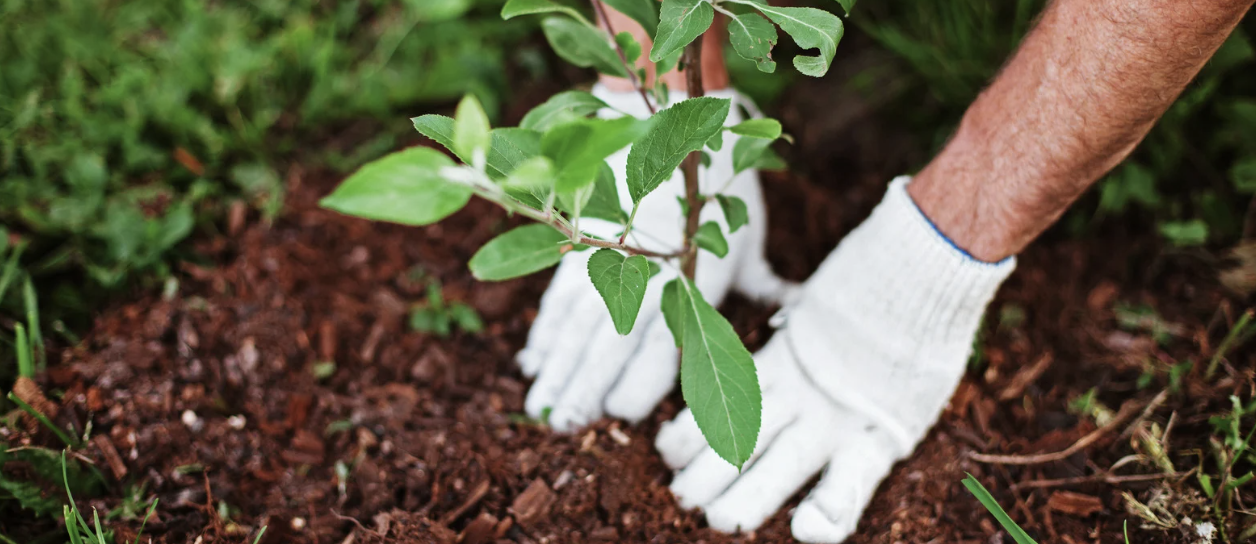Tired of digging, plowing, and breaking your back with traditional gardening methods? It might be time to embrace the new way of gardening—no-till gardening! 🌱
No-till gardening is a game-changer, and it’s not just for experienced gardeners. This eco-friendly method allows you to skip the shovel and work with nature instead of against it. By leaving the soil undisturbed, you’re helping your plants thrive and your garden grow healthier, while reducing your environmental impact.
So, why till when you can enjoy a lush, sustainable garden without the hassle?
What is No-Till Gardening?
No-till gardening, also known as no-dig gardening, is a method that eliminates the need for tilling or plowing the soil. Instead of disturbing the soil, gardeners focus on maintaining its integrity and building layers of organic matter, such as compost, mulch, and cover crops. This method conserves soil structure, encourages microbial life, and minimizes erosion.
Tilling may seem like a necessary step to prepare your garden, but it can actually harm the soil by breaking down its structure, disturbing the natural microbial ecosystem, and accelerating erosion. No-till gardening not only reduces these harmful effects but also improves water retention, nutrient cycling, and overall soil fertility.
Why You Should Choose No-Till Gardening
There are several reasons why no-till gardening is a smarter and more sustainable choice for your garden. Here are just a few benefits:
1. Improved Soil Structure
Tilling can damage soil structure, breaking up aggregates and causing compaction. No-till gardening leaves the soil undisturbed, allowing beneficial microorganisms and earthworms to thrive. The result is loose, well-aerated soil that promotes healthy root development and plant growth.
2. Better Water Retention
Tilling can expose the soil to wind and water erosion, leading to water runoff and moisture loss. By using a no-till approach, you retain moisture in the soil, reducing the need for frequent irrigation. Organic layers such as mulch and compost help retain water, ensuring your plants have access to moisture when they need it most.
3. Enhanced Fertility
No-till gardening relies on organic matter to provide nutrients to plants. The decomposition of organic materials like mulch and compost naturally feeds the soil with essential nutrients, reducing the need for synthetic fertilizers. Ecoworm Soil Extract, rich in plant nutrients and beneficial microbes, is the perfect addition to support soil fertility without chemicals.
4. Reduced Erosion
Soil erosion is a significant issue with traditional tilling. Every time the soil is tilled, it is more prone to erosion from wind and rain. No-till gardening, on the other hand, keeps the soil intact, reducing erosion and preserving your garden’s soil health for years to come.
5. Natural Weed Control
Weeds are often a challenge for gardeners, but no-till gardening makes it easier to control them. The mulch and organic matter you layer over the soil block sunlight from reaching weed seeds, preventing them from germinating. Additionally, cover crops can serve as a natural weed suppressant while enriching the soil.
How to Start a No-Till Garden
Getting started with no-till gardening is simple and doesn’t require any special equipment. Here are a few easy steps to help you begin:
1. Clear the Area
Start by removing any large weeds, grass, or debris from the area where you want to create your garden. You don’t need to till the soil—just remove the top layer of larger plants or roots.
2. Add Organic Matter
Spread a thick layer of compost, organic mulch, or straw over the soil. This will provide a nutrient-rich environment for your plants to grow. Cover crops such as clover or rye can also be added to further enrich the soil and protect it from erosion.
3. Plant Your Crops
Once you’ve added the organic layers, plant your seeds or seedlings directly into the soil. For deep-rooted crops like tomatoes or carrots, simply make small holes in the organic layer and plant. Water thoroughly to help your plants settle in.
4. Maintain Your Garden
Over the growing season, continue to add layers of mulch and organic matter to maintain soil health. This helps retain moisture, prevent weeds, and continue enriching the soil.
How Ecoworm Soil Extract Can Help Your No-Till Garden
While no-till gardening naturally promotes soil health, adding Ecoworm Soil Extract can provide your garden with an extra boost. Ecoworm Soil Extract is a highly concentrated organic liquid made from high-quality vermicompost. It contains a rich blend of essential plant nutrients and beneficial microbes that can enhance the soil structure and promote sustainable plant growth.
The microbes in Ecoworm Soil Extract are particularly valuable because they serve as food for earthworms, which play a crucial role in aerating the soil and improving its structure. When you apply Ecoworm Soil Extract, you create a rich environment that attracts earthworms, which further improve soil fertility and ensure healthier plant roots.
By using Ecoworm Soil Extract, you can accelerate the benefits of no-till gardening, fostering a thriving ecosystem of beneficial microorganisms and organisms like earthworms that work together to maintain soil health and plant vitality.
Start Your No-Till Garden with Ecoworm Today
No-till gardening is an incredibly effective and sustainable method for growing healthy plants while preserving the environment. By eliminating the need for tilling, you protect the soil structure, promote biodiversity, and reduce the need for synthetic fertilizers and pesticides.
For an extra boost, Ecoworm Soil Extract can enhance your no-till garden by providing essential nutrients, fostering healthy microbial activity, and attracting earthworms that naturally improve your soil. Whether you’re a seasoned gardener or a beginner, Ecoworm offers a natural solution to help your garden thrive while promoting sustainability.
Ready to give no-till gardening a try? Ecoworm’s organic fertilizers and soil treatments are the perfect addition to your eco-friendly gardening journey. Start today and see the difference!


Comments are closed